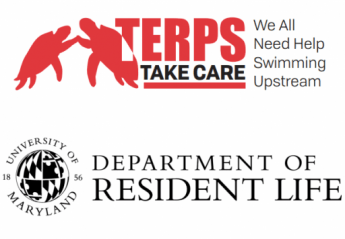Have you ever had a friend tell you that you were a perfectionist? Maybe you recognized some tendencies of perfectionism in yourself. Maybe you even feel like your perfectionism is ultimately a positive thing, contributing toward your successes. There is, however, a difference between perfectionism and “healthy striving,” which is helpfully described (along with useful tips for recognizing and navigating both!) on The Counseling Center’s Resource on Perfectionism & Low Self-Esteem.
You really should check out their page, but here are some highlights.
In addition to outlining how self-esteem impacts perfectionism and healthy striving, the Perfectionism & Low Self-Esteem page outlines some questions you can use to identify where your efforts fall on the spectrum. Try asking yourself the following questions: are your efforts motivated by fear and obligation, or enthusiasm and passion? Are your standards for success constantly shifting out of reach or remaining unrealistic for your circumstances, or are they high but reasonable standards, and adaptable based on your situation? When you do succeed, do you find yourself satisfied and feeling accomplished, or are you underwhelmed? Do you find yourself preoccupied with a fear of failure, or do you bounce back from disappointment quickly and recognize it as an opportunity for growth?
The Perfectionism & Low Self-Esteem page has a number of other questions you can ask yourself to figure out where you fall on the spectrum between perfectionism and healthy striving. It also provides a list of strategies for trying to shift your mindset away from perfectionism and into a healthier realm. Some of my favorites (out of a very long list!) include:
- setting realistic standards and goals—they can be high, but they also need to be achievable,
- enjoying the process, not just the outcome,
- recognizing flaws as part of human nature,
- practicing thinking of mistakes as opportunities for growth and learning,
- reminding yourself that failure is always, inevitably involved on the journey to success,
- letting yourself acknowledge feelings of disappointment and frustration without spiraling into negative thinking and self-blame,
- giving yourself credit for your efforts rather than your outcomes, and
- practicing nonjudgmental thinking, both about yourself and about others – in other words, give yourself some grace!
There’s an exercise briefly outlined on the Perfectionism & Low Self-Esteem page that can be extremely useful. The Counseling Center recommends that we challenge our unrealistic thoughts and expectations about ourselves and those around us, and try to reframe them into ideas that are more positive and realistic – even if we have difficulty accepting them at first. However, we can fall into another trap – the trap of trying to be positive, but being toxically positive instead. Rather, we want to reframe our thoughts into something realistic and self-supportive. Here are some examples.
Perfectionist thought: If I don’t get an A in this class, it means I didn’t try hard enough, I’m stupid, and I won’t be able to get into my grad program.
Toxic positivity: I can get an A if I just study hard enough, and everything will be fine.
Realistic reframe: I am going to study hard and do my best, and also recognize that I may not be able to foresee everything that could get in the way of an ideal grade. I know there are more options for my future (including grad school) than I can think of on my own, so I will utilize all my support systems if things don’t go my way.Perfectionist thought: If this relationship doesn’t work out, it means that I am going to be alone forever. I may even be unloveable.
Toxic positivity: If I just try harder, I know I can make this relationship work, no matter what happens.
Realistic reframe: I am going to try keep improving my communication with this person, to be open about both of our needs and boundaries. There have been good memories I associate with this relationship, and if it doesn’t work out, I know I will have learned a lot to take into my next relationship.
The Counseling Center doesn’t just outline all of this information for you to navigate on your own, of course. They provide an incredible list of resources, including a pdf on Overcoming Perfectionism, a free ebook on the signs of perfectionism, a number of Brene Brown youtube videos on The Power of Vulnerability & Listening to Shame. There are also links to Counseling Center workbooks you can use to explore and navigate your perfectionism, and some titles and recommendations for hard-copy books that could be useful. Finally, they also offer some specific services to provide support if you have identified a perfectionist streak in your life: general and women’s self-compassion groups, the Anxiety Toolbox and Getting Unstuck workshops, and even short-term individual counseling if the other options don’t provide you with enough tools and support to better manage your perfectionist tendencies.
All of this is to say that we could all use some time browsing The Counseling Center’s Resource on Perfectionism & Low Self-Esteem. The page is wildly helpful, and we can all benefit from the information they have so thoroughly gathered and shared with the community. Definitely check it out!
